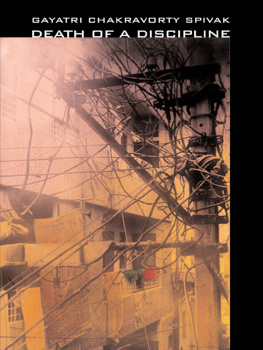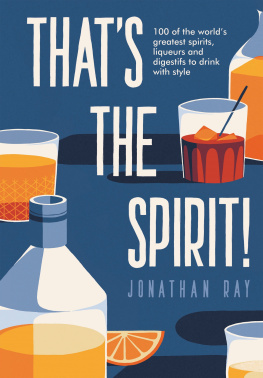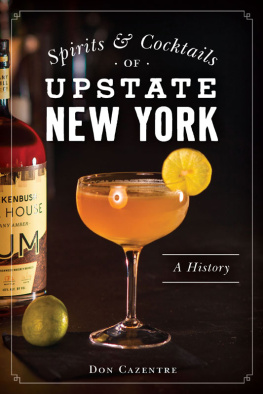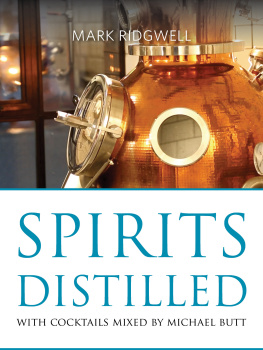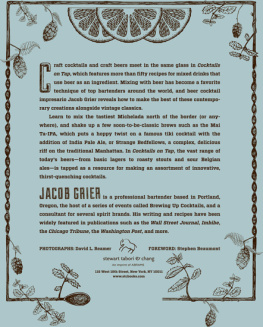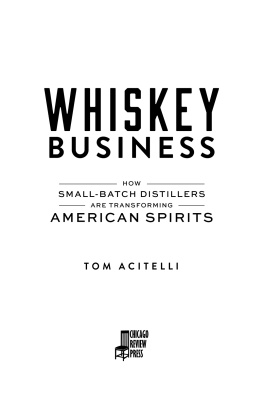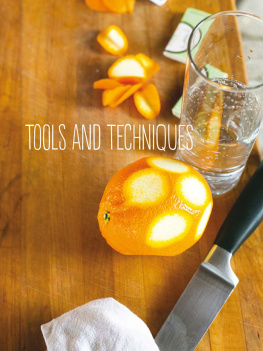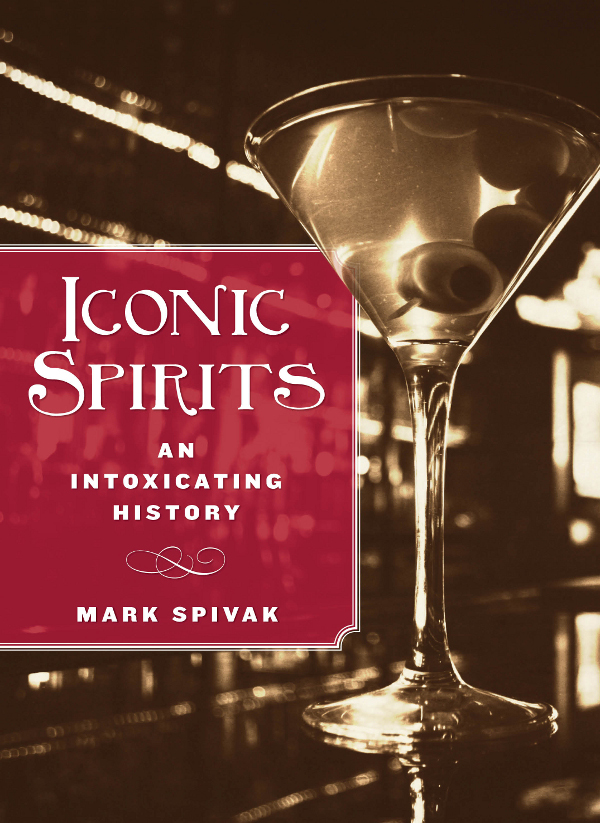Youre reading this book because my agent, Kate Epstein, believed in it. She nurtured the idea while functioning as a cheerleader, advocate, and sounding board. I couldnt begin to thank her.
Im grateful to Holly Rubino, my editor at Globe Pequot Press, for approaching this project with wisdom and tact. She made the editorial process enjoyable, which is no small feat.
I appreciate the efforts of Sallie Randolph, my media attorney, who put in extra time to help me get the manuscript in order.
Many people were kind and gracious to me along the way, particularly Joe Michalek of Piedmont Distillers, Tish Harcus at Canadian Club, Larry Kass at Heaven Hill, and Rob Cooper of St-Germain. I could not have told these stories without their assistance.
Above all Im grateful to Carolann, for believing in me while not taking me seriously.
Whats a lifelong, committed wine geek doing writing a book about spirits?
For one thing, after I conceived the initial idea and began the research, I became enthralled with the resonant and compelling nature of these stories. Not only are they great yarns, but theyre also untold storiesat least as far as the average imbiber is concerned. I realized that if I could bring them to life with a fraction of their original impact, I would be helping to connect readers with their past.
Coming back to spirits from an immersion in wine, I was struck by how much fun everyone in the liquor supply chain was having: Bartenders, salespeople, and executivesthey all said so, but they didnt need toit was apparent in the thrill of their work. There was an entrepreneurial joy in the creation of spirits brands that I hadnt witnessed in the wine business in a long, long time.
We all know that the cocktail culture has exploded across America over the past several decades. Much of the emphasis is usually placed on the resurrection of classic cocktails, on the consumption of those drinks by legions of consumers, and on the creation of new libations by a creative group of mixologists. More fundamental, and ultimately more interesting, are the stories of the risk takers who created those spirits in the first place. These are people who put their lives, careers, and fortunes on the line to pursue a vision that in many cases really did change the world.
From the epidemic of gin consumption that almost brought down the British empire, to Gaspare Campari toiling away in his workshop to infuse sixty herbs, spices, barks, and fruit peels into a mixture of alcohol and distilled water, to Sidney Frank waking up one morning and deciding to create the worlds best vodka, our global economy and culture have been profoundly affected by the spirits that I have designated here as iconic. Legislation was passed, moral crusades were launched and carried out, and the nature of society was altered. It hardly seems possible over a few shots of booze, but the twelve spirits featured in this book became the catalysts for change in governments and our way of life. They became the vehicles for creating the world in which we currently live.
At the end of each chapter, Ive included recipes for the classic or most popular cocktails involving that particular spirit. Some of these recipes are amalgams of many different versions, collated into a form that seems to work best. In other cases, distillers or mixologists have kindly given me permission to reproduce their recipes.
I hope youll find these stories as enthralling as I did, because they are the best kinds of tales: the type a writer could never make up.
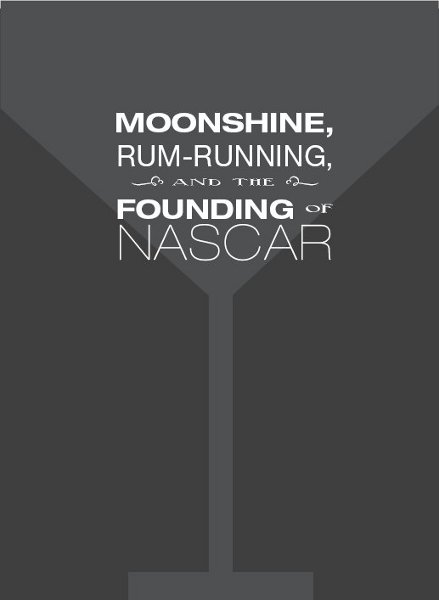
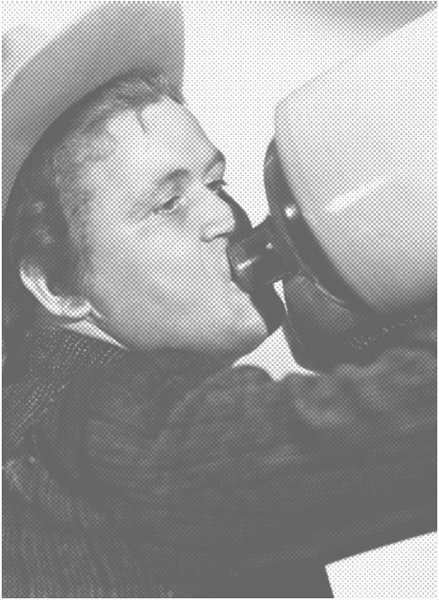
D rive out of the city of Winston-Salem, North Carolina, and the landscape turns rural very quickly. By the time you reach Wilkes County, the soft rippling hills have become higher and steeper, and the valleys are dotted with frame houses, farmland, and working tractors.
Joe Michalek, the energetic and genial president of Piedmont Distillers, is at the wheel. Its 6:30 a.m., and were driving out to have breakfast with Junior Johnsondriving on Junior Johnson Highway, an eight-mile stretch of US Route 421 named for the famous race car driver. We ease off onto old 421, which used to be known as Bootleggers Highway. Sixty years ago there were nearly 400 stills in Wilkes County, and the roads here were dirtnothin more than cow pastures, according to Junior. Bootleggers turned off their headlights at night to avoid detection and navigated by the light of the moon.
Robert Glenn Johnson Jr., known as Junior, was born in Wilkes County in 1931. He began running moonshine out of the hills at the age of fourteen, using his dads rebuilt 1940 Ford. He became the fastest man on the dirt roads, the one bootlegger the law couldnt catch. In time, he took his cars, his speed, and his nerve onto the race track and became one of the greatest drivers in NASCAR history.
Author Tom Wolfe called Johnson the Last American Hero. The nickname stuck, and it became the title of a 1973 movie about his life, a Hollywood extravaganza starring Jeff Bridges. Wolfe not only wrote at length about the legend of Junior Johnson in his breakout 1965 Esquire piece, he also helped create it. Junior was already an idol throughout the South at that time but was relatively unknown outside the region. The story captured him at the height of his racing career, and it also took the legend and burnished it so brightly that it became visible around the country.
The entrance to Juniors estate has wrought-iron gates and brick barriers chiseled with the initials jj. It almost seems palatial, but this is a working farm with more than 800 head of cattle. We pull up in front of a large shed. Half the building is a garage housing Juniors 1963 Chevy racer, his son Roberts race car, and his rebuilt 1940 Ford bootleg car. The other half resembles a fraternal hall. Racing memorabilia clutters the walls, and Junior holds court on one side of a long folding table. At eighty, his once-formidable bulk has thinned out, and his hair has turned white, but he is alert to every nuance of every conversation, including those he seems not to hear.


